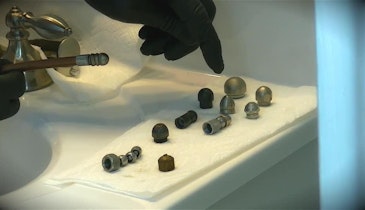Interested in Business?
Get Business articles, news and videos right in your inbox! Sign up now.
Business + Get AlertsWe hear and read a lot about big company cultural excellence driven by globally recognized visionaries. But service business owners can project the same kind of “big leader” energy to create a culture of excellence in their companies.
By my own experience, I know what it’s like for a business to fail. I also know firsthand how to grow a business and lead a team to success. Through my experience, I have learned a lot about what being a leader really means. Many of these lessons were learned the hard way. So, from one leader to another, here are some ways to build a culture of excellence in your workplace.
1. Check your attitude.
Do you consider your emotional state before you walk in the front door of your building? Think about that question to understand what it means. Being positive isn’t just being happy: As a leader, it means you can never have another bad day. Your attitude will have an effect on your team as long as you’re leading them.
Think about how your employees might feel if you went to work in a horrible mood, and everyone knew it. The second you walk in with that dark cloud of negativity hanging over you, you can single-handedly ruin your company’s productivity.
As a leader, you need to be the rock that your company organizes itself around. And that means you can’t have a bad day, because everything you do impacts your team for good and bad. So, before you walk through that door, make sure your attitude is positive and upbeat.
2. Learn to actively listen.
When a team member tells you something, do you really pay attention? If you don’t, you’re losing significant opportunities that not only cost money, but can damage your team’s morale. Everyone has an emotional need to be understood. Your team is on the front line, working with your customers. The more you listen and become aligned with your team, the more successful in your marketplace you will be. Learn to be engaged in pivotal moments and listen to those people who follow you. Great leaders are great listeners. To attain cultural excellence, learn to truly pay attention to your team.
3. Does your team look up to you or put up with you?
Great leaders attract people with similar interests. They project the image of their brand and live up to it. Bad leaders, on the other hand, forget that to be truly successful, they need to focus on embodying the values they claim to promote. If there is a break in employee trust because of your behavior, it can cause some serious problems in your office culture. Compensation is not enough for your team anymore. They need inspiration and great leadership. Live by the values you teach so that your team will look up to you instead of tolerating you.
4. Feeling welcome in your own office is key to cultural excellence.
When you talk to your team, how do you feel? Do they treat you like a friend? An enemy? A meddler, who’s come to ruin their projects or micromanage them? If you don’t feel welcome, it may be time for some self-reflection. If you’re not doing enough as a leader to make people want to gather around you, you’re not leading. To build a culture of excellence, you need to be excellent yourself. If you’re truly doing that, you’ll feel it and you’ll always feel welcome in your own office.
5. Before you fire someone, consider the person who hired them.
Many bosses probably have a list of bad employees on their mind. Really bad hires happen to all of us. Even the best leaders have a really bad hire here and there, but if you’re running into a bunch of little mistakes or chronic bad performance from several employees all the time, there’s a good chance you’re doing something wrong as a leader, too.
In my training company, we put thousands of our clients’ call handlers through a buyer experience certification program. When you put your team through training and hold them accountable, you are showing you believe in their ability and care about their success.
You likely hired each member on your team because you believed they could do the job. Showing empathy toward your team means you have walked a mile in their shoes or can at least imagine what they are going through and support them with ongoing training and accountability. If you do not have the infrastructure in-house, outsource it, and you’ll be amazed at how that will positively affect your culture and company growth. Before you fire people, ask yourself if you’ve given them a fighting chance with training and accountability.
6. Do you skip the pleasantries?
How often do you just jump to the point when you need information from your team on a project? Really, this is the difference between treating people like humans and treating them like machines. You hired thinking, feeling individuals, not drones, and the way you interact with your employees shows how you value their individual worth. This can affect how they perceive you, and that affects their morale. The surest way to a bad corporate culture is to adopt a no-nonsense, business-focused attitude that doesn’t consider the human aspect. Just remember that you are working with people, and when you focus on your people, cultural excellence and profit will come.
7. Do you keep your cool under pressure?
When something goes wrong, what is your response? Do you find yourself ever lashing out at your employees, berating them for something they’ve done? Or are you taking a calm, measured approach that focuses on solutions rather than problems?
Your team is your biggest strength, and you need to know you can count on them. More important, they need to know they can count on you. And if you’re constantly putting the blame for your business’ problems on them, they won’t be there when you need them to be.
Take blame as often as you can. If it is your fault, own it. And when credit is due, give it away to your team as often as possible. Your employees will respect you for it, and they’ll want to follow the example you have set.
To build a culture of excellence, you need to be a great leader, and if you’re constantly working to become a better one, your business will grow exponentially.






